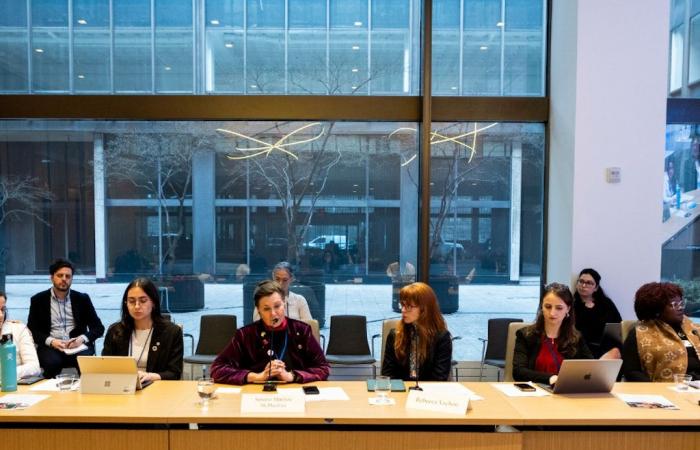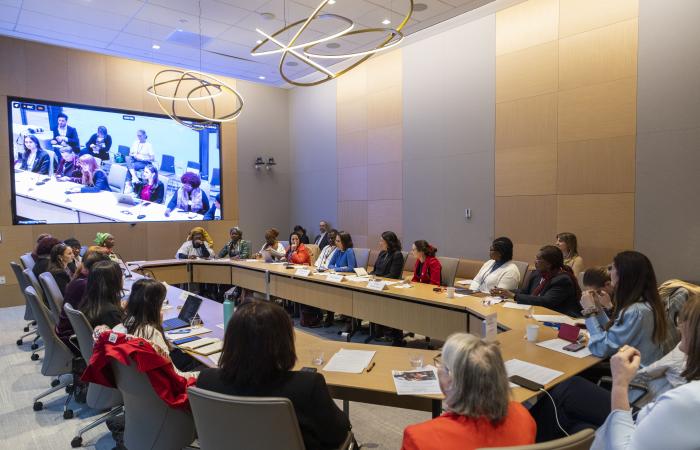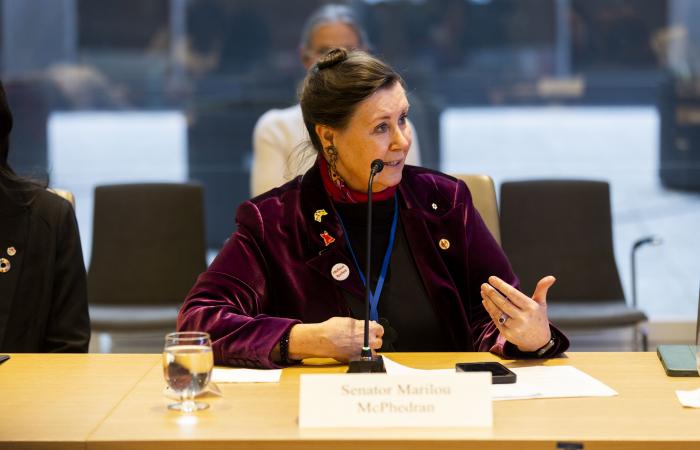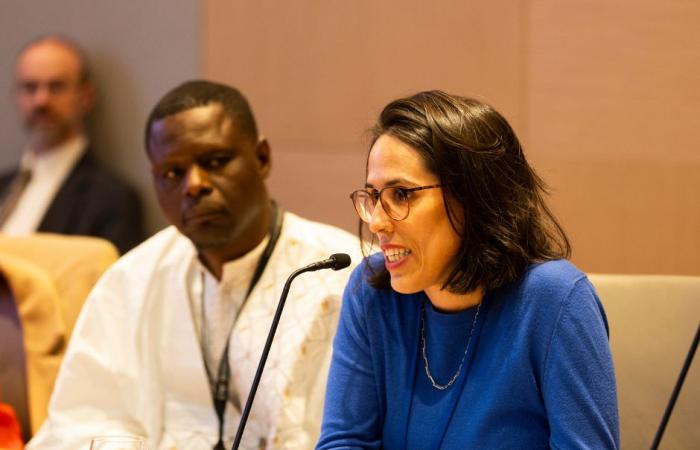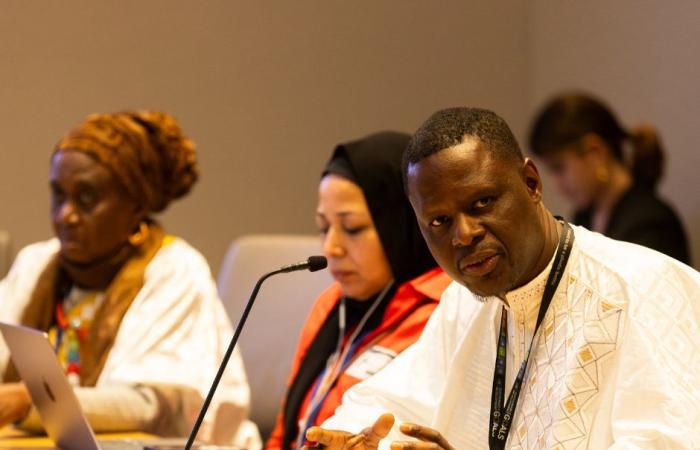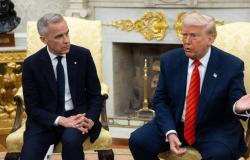On the occasion of the 69th session of the United Nations women’s Condition (CCF), the Bahá’í Community Office of Public Affairs in Canada collaborated with the Bahá’íe International Community (CIB) to organize an event on the way the main social spaces in Canada, such as houses, neighborhoods or even workplaces, have transformed more equality between genres in the past thirty years.
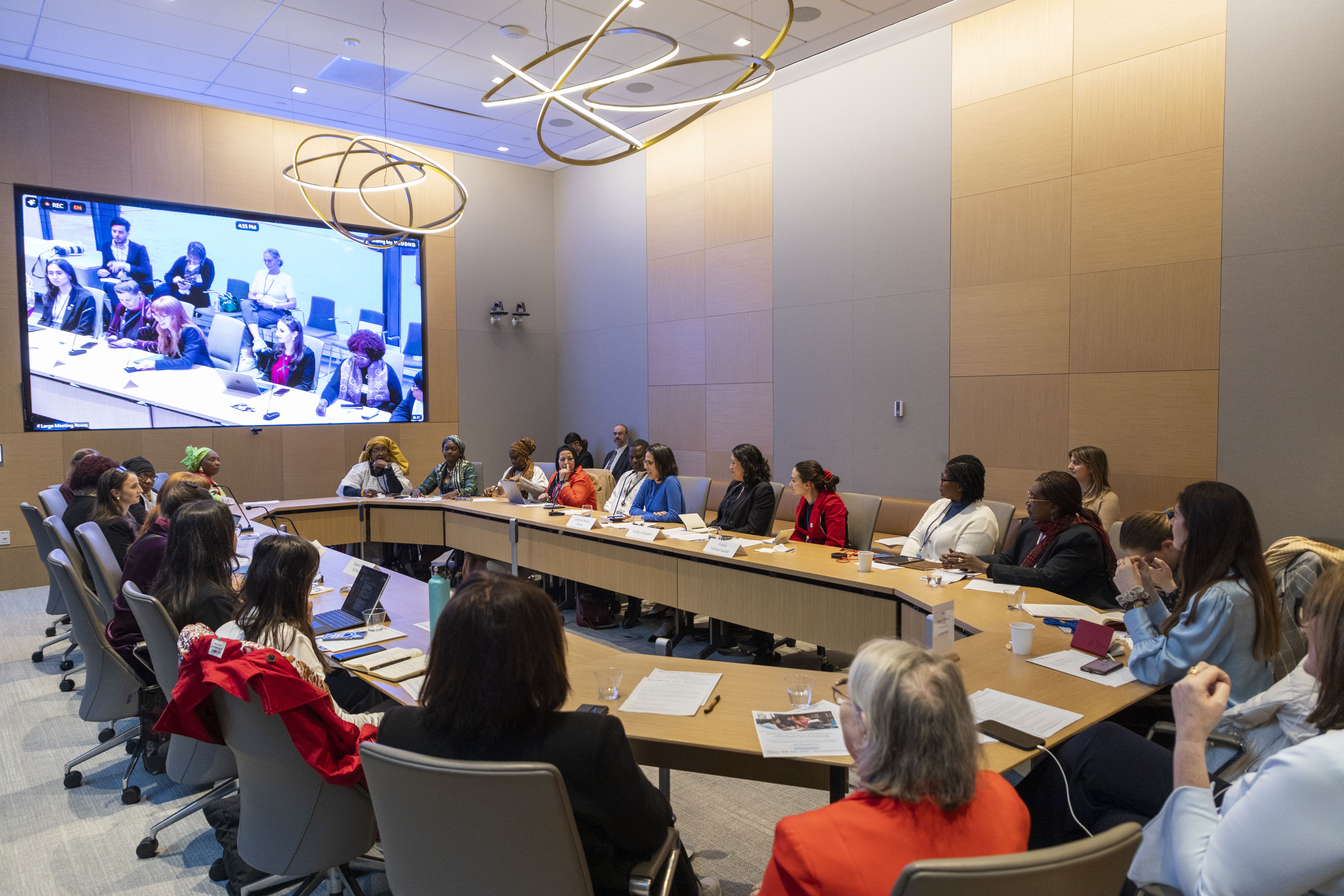
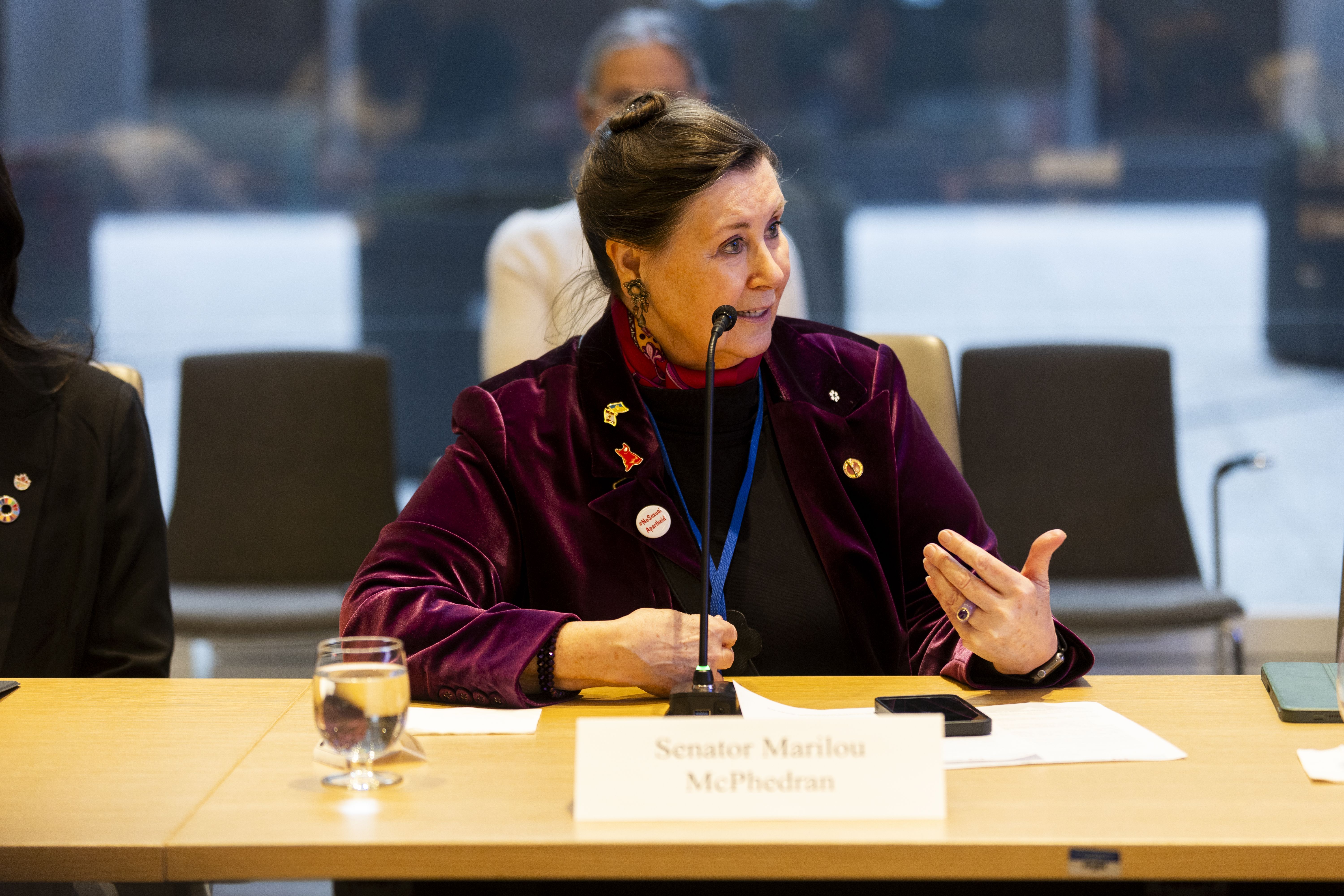

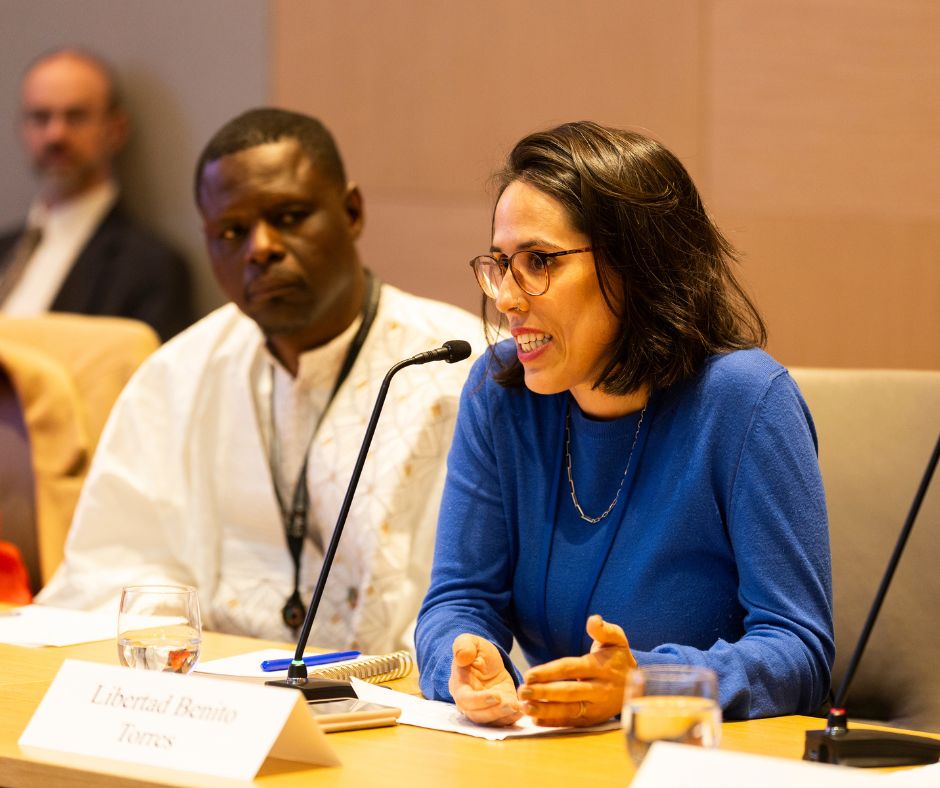
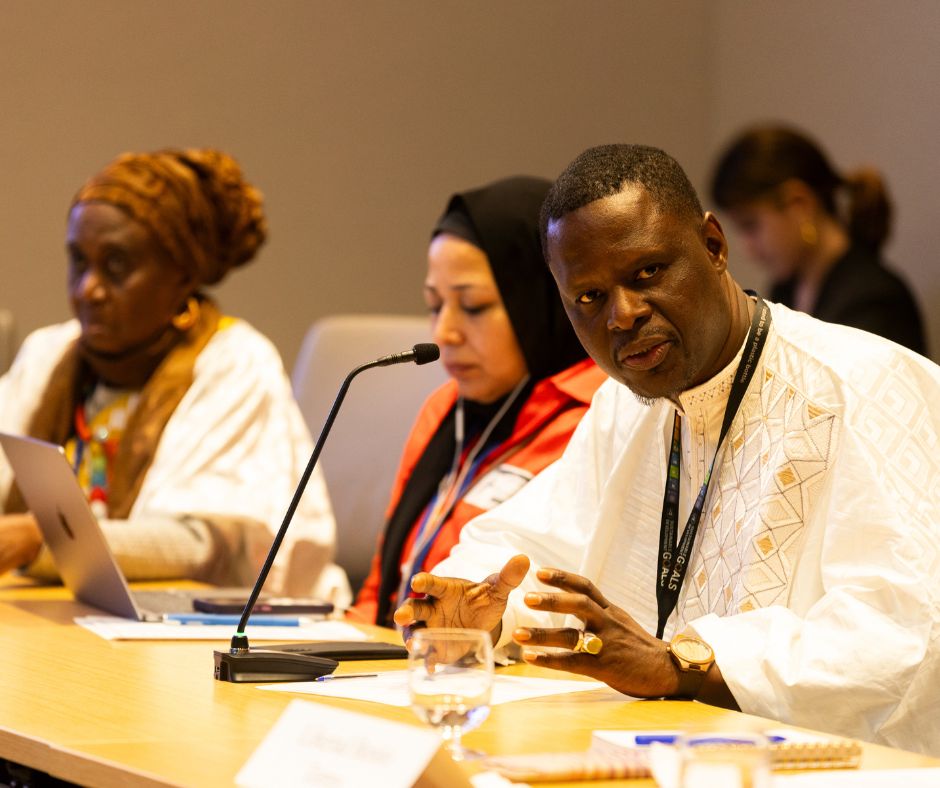
Co -packed by the Government of Canada, the French -speaking hybrid panel “Transformer social spaces: 30 years of promotion of gender equality in Canada” has been designed to encourage greater linguistic diversity in international gender discussions and to highlight the prospects of French -speaking organizations and institutions.
The event was held at a time of international reflection, on the occasion of the 30the Anniversary of the Beijing Declaration and Action Program. This framework, adopted by 189 states, encourages equality between genres in all aspects of life. It constitutes the major international instrument put forward by the commission of the condition of women.
“This year marking a birthday is an opportunity to reflect on the progress made in gender equality in the past three decades, as well as on the challenges that persist,” said Rebecca Vachon, Comodative of the Round Table and CIB representative at the CCF. “This panel will discuss the issue of transformation. While there is currently a decline in human rights all over the world, it is crucial to identify the characteristics, attitudes and processes to maintain advances in favor of gender equality. »»
The panel started with a presentation by Esther Maloney, responsible for planning and educational programs at the National Film Office in Canada. Maloney looked at the crucial importance of the home as a social space, thus promoting the questioning and transformation of gender -related perceptions. She stressed that the home is a place conducive to the overthrow of traditional beliefs and values on gender, which are often transmitted from generation to generation.
Maloney has also stressed the importance of the community in supporting transformation: “Values and behaviors favoring gender equality, instilled in the family, can be reinforced in a community. I saw how my membership of a neighborhood collective made up of various families had a positive impact on the young generation, bringing out the best of it. Not only on the material level, but also by cultivating the spiritual qualities that are kindness, love, justice, generosity and confidence, “said Maloney.
-By speaking on international cooperation, Emilie Galland-Jarrett, Director of Politics and Pleadyers at Save the Children Canadahighlighted the crucial importance of gender equality to achieve sustainable development, both local and international. Galland-Jarrett explained how organizations such as Save the Children have developed their gender expertise by adopting gender transformation approaches which aim to eliminate the deep causes of inequality by attacking underlying social standards. “The inequalities between genres constitute an obstacle to sustainable development,” she said, emphasizing the need to intervene early, because “values, norms and behaviors related to gender are instilled in childhood. »»
Bilkis Vissandjée, professor at the Faculty of Nurses at the University of Montreal, addressed the question of gender equality in Canada by highlighting women who were at the forefront of this movement in Quebec’s history. Based on her research in public health, she highlighted that access to health care, especially for newly immigrant women, remains an obstacle to gender equality in Canada. She proposed to improve access to these services by creating inclusive environments which accept diversity and which recognize the trauma experienced by many newcomers.
The panel also invited the Honorable Marilou Mcpiedran, an independent manitoba senator and long -standing defenders of women’s rights. By evoking the aspects of an inclusive space, it underlines: “We can design perfect material places, but if individuals do not have the capacity to protect themselves, these places will not be entirely useful to them. Mcpmedran stressed that spaces must be designed to ensure both the physical accessibility and emotional security of the most vulnerable members of society.
The panel ended with the remarks of Libertad Benito Torres, who is an expert advisor in terms of gender equality in Equitas, a Montreal organization which is dedicated to the defense of human rights. Torres addressed the evolution of human education education in Canada and around the world. “We strive to set up an education in the rights of people who aims at social transformation, which seeks to approach the dynamics of power and which calls into question social practices and norms,” said Ms. Torres, “when human rights and gender equality are part of our fundamental values, our society becomes more resistant to these same rights. »»
You can view the entire panel on this site.
The CIB declaration to the CSW69, entitled “A full partnership – the advancement of women as a prerequisite for building peaceful companies”, can be consulted ici.

